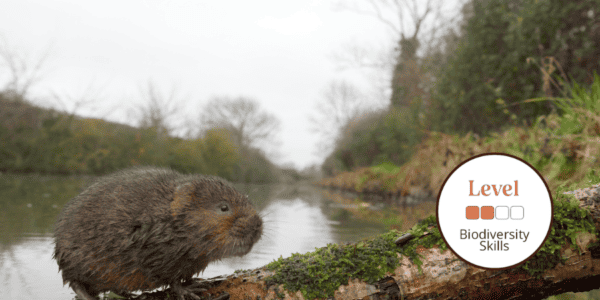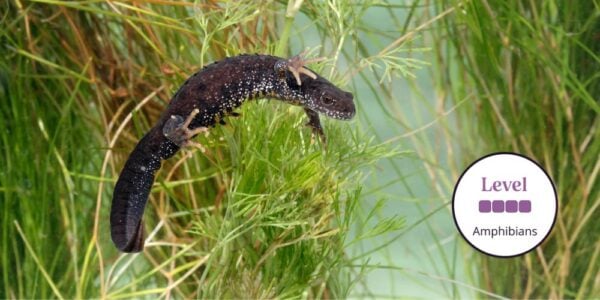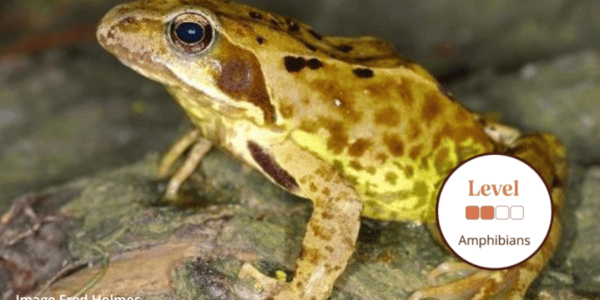This beginner course will cover theory and practice of designing and carrying out reptile surveys using standard methods, and how to record the results. The course is suitable for anyone with a personal or professional interest in surveying for reptiles.
Being able to design, implement and record the results of reptile surveys is a critical skill for anyone looking at working within a consultancy career.
What will be covered during this course?
- Theory of reptile survey techniques
- Undertaking reptile surveys
- Reptile recording
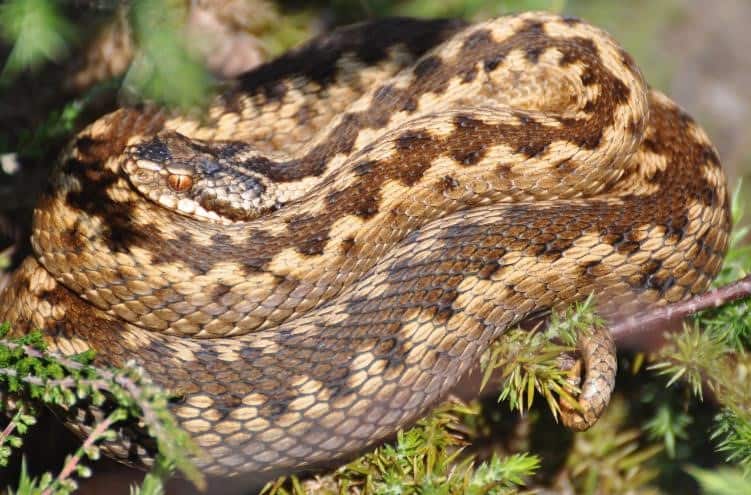
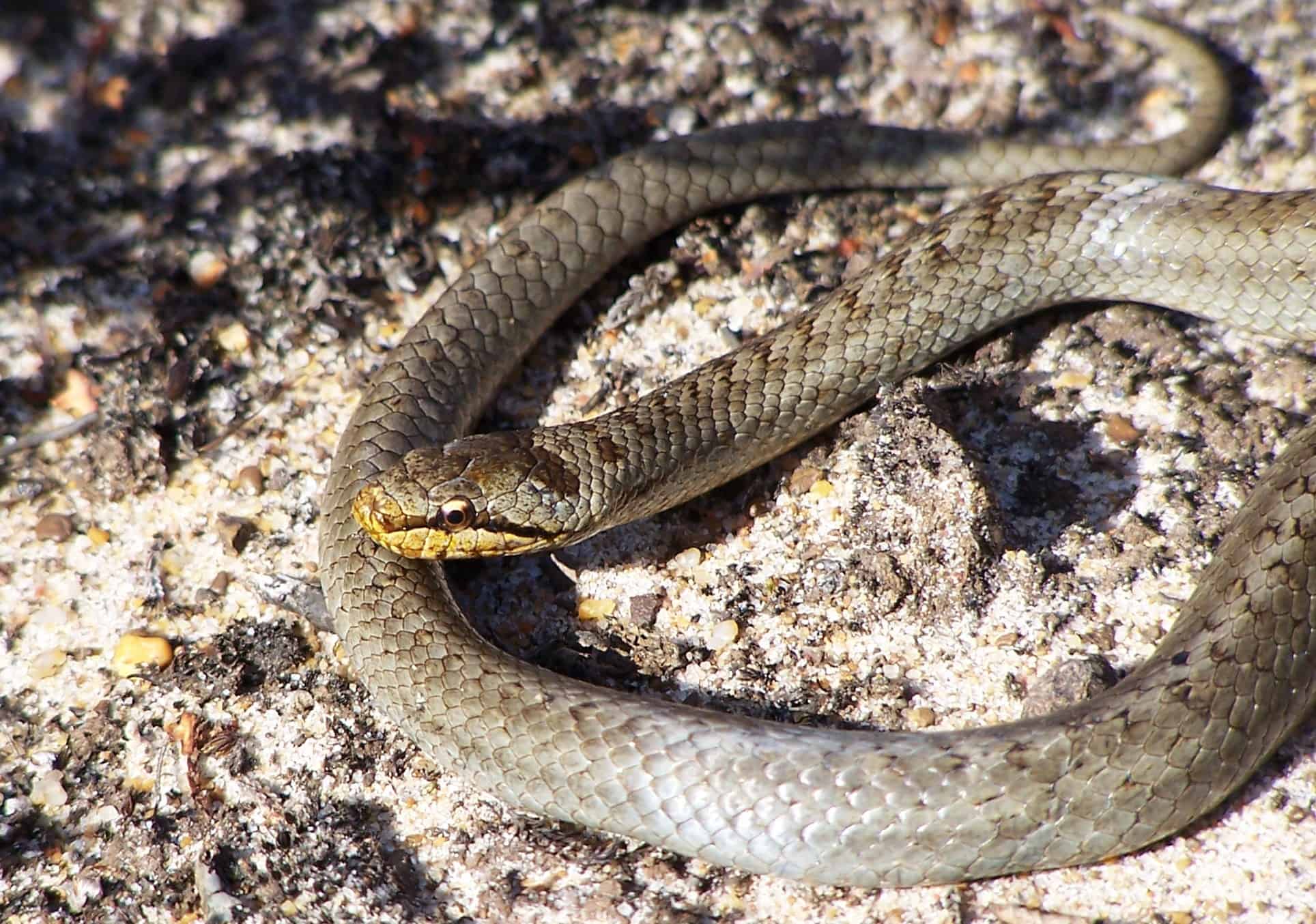
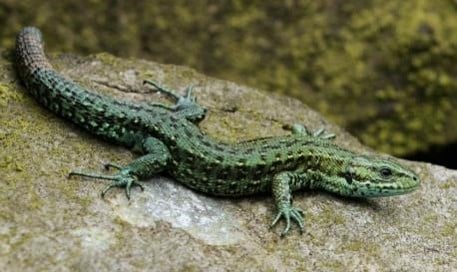
Read More
This course will introduce you to the theory of reptile survey techniques, followed by a practical demonstration of reptile field survey and finally how to record the results. By the end of the course, you will be able to design, carry out and record the results of a reptile survey using standard methods.
By the end of the course, you will be able to:
- Explain the different ways Reptiles can be surveyed in the UK
- Conduct a variety of reptile survey techniques
- Describe how reptile species occurrence records can be submitted and how they have been used to broaden our understanding of British reptile distributions
- Share this knowledge with friends, family, and fellow volunteers
Who Should Attend? – The course is suitable for anyone with a personal or professional interest in surveying for reptiles. This could include nature enthusiasts, students, early career ecologists, citizen scientists, and volunteer surveyors.
Knowledge Level – Beginner. Level descriptors can be found on the following web-page: Framework and Course Level Descriptors
Prior Knowledge – Knowledge of British reptile identification and ecology is beneficial, but not essential.
PLEASE NOTE the course fee is for tuition only. There is no accommodation provided with this course.
Bookings will close if course capacity is reached.
Please email [email protected] if you have any questions.
About our partner, ARC
The Amphibian and Reptile Conservation Trust (ARC) was established in June 2009. ARC was created around the core of the Herpetological Conservation Trust (HCT), in response to the wider needs of herpetofauna conservation, providing the UK focus for all aspects of reptile and amphibian conservation. ARC continues to focus on the UK Biodiversity Action Plan, creating an extensive network of nature reserves, coordinating monitoring programmes and volunteer networks and developing an effective role in advocacy both within the UK and Europe.
About the Tutor
Dr Rob Ward
Dr Rob Ward is a conservation biologist who has been working with amphibians and reptiles for 15 years and completed his PhD on the ecology and conservation of grass snakes. He is currently the Data and GIS Officer for the Amphibian and Reptile Conservation Trust (ARC) where his work includes developing reptile and amphibian monitoring programmes and managing the organisation’s data and mapping.
Example Timetable
Example Timetable
This timetable is subject to change but should give a clear outline of what to expect.
- Please arrive in time for the course to start promptly at 9:00am
- The course will end at 4:00pm
9:00am Introductions
9:30am Classroom session covering: Introduction to reptile survey theory
10:30am Break and prepare for field session – refreshments not provided
10:45am Field Session - including practical demonstration of reptile survey techniques
12:00pm Lunch – Not included
1:00pm Continued field session
2:45pm Break – refreshments not provided
3:00pm Classroom session covering: Recording reptiles
3:45pm Plenary and final questions
4:00pm Finish
Please note accommodation, refreshments and an evening meal are not included.
What's Included
The course has been carefully created by expert tutors and educators to help you continue to build and develop your knowledge and apply it within the field surrounded by like-minded individuals.
The course includes:
- Classroom learning covering the theory of the species
- Field excursions to apply new knowledge
- Expert tuition for which the Field Studies Council is renowned
- Clear objectives and progression
You can rest assured that the absolute best content from an expert in environmental education will be provided. In choosing an FSC course, you will be joining thousands of people who learn with us each year.
Bursaries and Subsidies
Student Discount
This course is eligible for a student discount. If you are a current student, please use discount code BioStudent20 at checkout for 20% off all Biodiversity courses.
Before You Attend
What to Bring:
- Notebook and pencil
- Camera to capture images
- Lunch and refreshments
- Sensible footwear and clothing for being outdoors
You may wish to purchase the FSC Guide to Reptiles and Amphibians to enhance your experience
There will be a member of staff with first aid training and access to a first aid kit on site. If you have special medical or access requirements, please let us know as soon as possible so we can plan the course.
Opportunities to attend this course
This course is not currently available to book. Dates will follow soon.
Sign up to our Email Newsletter
Progress Your Learning
This is a training course from the Field Studies Council, delivered by expert tutors with an approachable learning style. After attending this course, you may like to progress your learning with further relevant courses or branch out into other areas of natural history. The Field Studies Council offers both online and in person courses, so you can choose the learning style that suits you best.
The course gives you the opportunity to immerse yourself in a new subject and acquire novel skills. Our online portal gives you time to study at your own pace and fit the lessons around your own schedule.
If you have any questions about our courses please check our Frequently Asked Questions or email [email protected].
Group Bookings Made Easy
If you have a group of 10 or more individuals wanting to complete one of our courses, our team are available to discuss your options – from discounts to private team courses. Click here to find out more!
You can rest assured that the absolute best content from an expert in environmental education will be at your fingertips. In choosing a Field Studies Council course, you will be joining thousands of people who learn with us each year.


